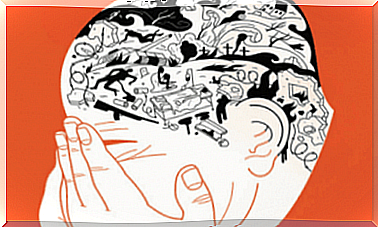Terrorism: How Do Terrorists Find People Who Join Them?

Unfortunately, on the news and in the press, news about terrorism is much more frequent than we would like. In fact, precisely because of the repetition and continuous exposure, we have reached a worrying point of desensitization. What was rare has become customary and the usual appears less and less serious.
The combination of little information and impactful images has become a habit. The consequences: misinformation and decline of interest. However, terrorism is not a phenomenon that law enforcement and leaders of large countries can fight alone. I l terrorism is a daily battle that begins with sensitivity towards our neighbors.
Mistakes about terrorism they lead us to
Terrorism is a phenomenon which, in general and at its origin, may appear to many far from the West. Although there are people who have experienced it closely, many others, who walk the western streets every day, would never have thought that it could touch them closely, that it could threaten them, frighten them, as well as make them feel compassion for the “victims far away “.

But, is it real? If we take Europe as an example, many of the terrorists are neither poor nor marginalized by society, much less immigrants. These are purely people of middle social class, apparently well integrated and with the nationality of the country in which they reside and carry out the attack. This can generate fear: a terrorist is not very different from us if we analyze him from the outside.
This statement raises an important question: How do terrorists involve these people? The answer is about interception and recruitment. Although the news we get usually describes people planning and carrying out attacks on their own, the truth is that there are others manipulating them.
A bad time
At first these “recruiters” select the people who seem most suitable. These “chosen ones” are usually going through a bad time, which can range from prison to arriving in a new country after breaking up with a partner or going through the stress of not meeting the family’s expectations. In any case, we are talking about a person who is usually integrated, but who, by the time recruitment occurs, is somehow isolated and blames the country or others for the circumstances in which he finds himself.

Feeling marginalized, together with the low control of one’s life, affect the physical immune system, but also the psychological one. The defenses on both levels will be low, so the feeling of danger and distress will be greater and greater. The person will feel weak and helpless.
This situation is known as aversion. If a person stagnates in an adverse situation for a long period of time, they will end up suffering physical, cognitive and emotional disorders. This picture makes her more suggestible and she will more easily trust the recruiters.
Change of identity
In these conditions it is normal for the person to lose confidence in himself, as he perceives that he is not in control of the situation. The second consequence is the loss of personal identity . We are talking about a person who loses contact with reality and isolates himself on a social level. He is a person who lacks motivation in achieving his personal goals and, therefore, easy to persuade.
While these processes happen, the person will try even of negative emotions “very energetic” or dynamic, such as hatred, anger, doubt and aversion. But also negative emotions of relaxation such as humiliation, fear and frustration.

Parallel to these processes, recruiters give a reason to live for. They offer these people an identity as members of a group. They offer him prestige and social support. They will give him simple and strict rules for living. At the same time, the subject will develop an ideology that will justify violence against those who marginalize him.
The interception of future terrorists
The panorama we have before us is characterized by a passive person, with a negative attitude, not focused on the task, frustrated and, therefore, irritable and aggressive. The consequence is that she may begin to compulsively think that her ills are caused by the social context that surrounds her and by the people who are part of it. Recruiters can take advantage of this situation for their mission.
Recruiters and detectors take advantage of a bad time that anyone can go through. They exploit this situation to leave the person without psychological or social resources. When she no longer has a way to defend herself, they offer her a way out of that situation. They offer her the opportunity to take revenge against those who have marginalized her, to start over, forgive her all her mistakes. For this, prevention starts from the closest context. As we have seen, counting on social support and adequate psychological resources can avoid the greater evil.









